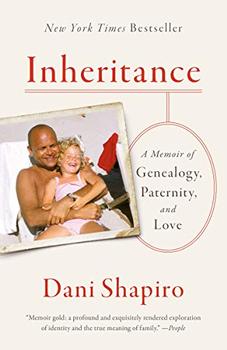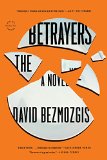Summary | Excerpt | Reviews | Beyond the book | Read-Alikes | Genres & Themes | Author Bio

A Novel
by Nicole KraussIn Forest Dark, Nicole Krauss presents parallel stories of two people who leave New York to stay in Israel, but never meet one another. First, we have Jules Epstein, a rich man who is in the process of divesting himself of his wealth, while at the same time looking for a project to memorialize his parents. Then we get the novelist Nicole (no, not the author herself, but a fictional version of her), who is trying to overcome writer's block for her book about the Tel Aviv Hilton, while at the same time trying to escape her life and less than happy marriage.
Both of these characters are motivated to find something allusive that may (or may not) solve their immediate problems. Krauss offers each of them a journey – to Israel – and then waylays them on their separate paths. In Jules' case, a chance meeting with the rabbi Menachem Klausner, (who insists that Jules is a direct descendant of King David), intercepts his search for the perfect way to spend his money. Nicole's work on her novel goes astray when she accepts a meeting with the retired literature professor (or possibly ex-Mossad officer, or both), Eliezer Friedman, who wants to enlist her in writing (what he believes is) the real final chapter to Franz Kafka's life story. This last bit is complicated, because Krauss combines the actual legal battle over Kafka's papers (see Beyond the Book), with fictional Friedman's wild theory that Kafka didn't die in 1924, but rather faked his death to move to Israel. The author uses the Tel Aviv Hilton Hotel as a connection point between these two characters, since Nicole wants to focus her next novel there, and it is where Jules makes his home.
Krauss distinguishes these two narratives by using different points of view: Jules' story is told in third person, and Nicole's in first. This gives the reader a sense of a close personal attachment to Nicole, whose story mixes reality with bouts of delusion and metaphysical experiences, which may have otherwise detached the reader from her adventures. Jules' perspective offers a larger view of the story's events, enabling the reader to understand more about the other people involved in the novel and, at the same time, providing insights into things Jules isn't always aware of; things that happen around and to him. To put it in another way, we get the close-up shots of Nicole and the panoramic views of Jules, but both of these portraits allow us into the minds and thoughts of these two characters – Nicole's thoughts come to us with her personal prejudice, while Jules' come without bias. Furthermore, Krauss emphasizes this parallel with the character Nicole's reverse déjà vu experiences; she sees herself in places where she hasn't been before, as if she's living in two universes.
I found this dual point of view structure to be incredibly intriguing, and something that stuck with me long after I finished reading Forest Dark. My mind kept going back to sections of the novel that touched on philosophy and spiritualism, how we perceive (or misperceive) both our history and our present situations, and whether the future is already perceptible.
Of course, this sounds terribly heavy and intellectual, but I can assure you that the narrative here (with a few exceptions) is highly readable and understandable, and even lyrical and humorous at turns. Forest Dark is so forceful and gripping that I simply gobbled it up from start to finish. Of course, I am probably the perfect target audience for this novel: I am Jewish, know Israel intimately, and am not afraid of being challenged by what could be considered absurd or fantastic. But even for the wider reading public, this is a five-star read.
![]() This review was originally published in The BookBrowse Review in September 2017, and has been updated for the
August 2018 edition.
Click here to go to this issue.
This review was originally published in The BookBrowse Review in September 2017, and has been updated for the
August 2018 edition.
Click here to go to this issue.

If you liked Forest Dark, try these:

by Dani Shapiro
Published 2020
A new memoir about identity, paternity, and family secrets--a real-time exploration of the staggering discovery Shapiro recently made about her father, and her struggle to piece together the hidden story of her own life.

by David Bezmozgis
Published 2015
A compact saga of love, duty, family, and sacrifice from a rising star whose fiction is "self-assured, elegant, perceptive . . . and unflinchingly honest" (New York Times)
Your guide toexceptional books
BookBrowse seeks out and recommends the best in contemporary fiction and nonfiction—books that not only engage and entertain but also deepen our understanding of ourselves and the world around us.